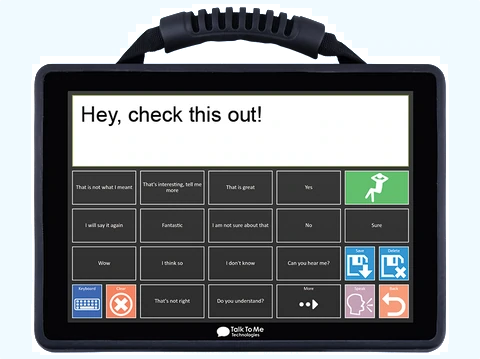Are you Listening?
This is our original communication pamphlet, in which Project AIR was created from. You can download a PDF file of it at – Are You Listening (PDF format).

Have you ever been in a situation where you were not understood or even ignored based on the way you look or speak? This is exactly what individuals with disabilities go through on an all too regular basis. Such individuals are oftentimes treated and addressed inappropriately, simply because they walk, talk, move, or appear differently than everyone else.
Much of society is quick to assume that these individuals are mentally incompetent and could never be capable of the task which they are attempting. Something as simple as ordering food at McDonald’s can be challenging, if the person with the disability has a speech impairment, and cannot be understood easily.
Individuals with disabilities, especially those that are more severe, should never be judged by their appearance. The old adage to ‘never judge a book by its cover’ fits perfectly here. Obviously no one has the ability to control how their disability affects their movements or appearance, thus why are they being judged immediately and unfairly?
It may surprise you to know that many individuals with more severe disabilities are extremely intelligent and educated, much more than the average person. Being treated as incompetent or as a child is very demeaning and frustrating to these individuals; many times, this is the greatest obstacle about their disability that they face…not their actual disability, as many would assume.
Interacting with Someone with a Disability
If you have never interacted with someone with a disability, it can probably seem intimidating, although it should not be. First and foremost, individuals with disabilities are no different than anyone else! They may move and speak differently than you, but this does not mean that they cannot have a meaningful conversation or conduct their business at hand, just as everyone does.
Communicating with Someone with a Speech Impairment
When interacting with someone with a significant speech impairment, it is wrong to immediately assume that you cannot understand when you first hear them speak. Many times, the person can be understood, if you take the time to carefully listen to what they are trying to tell you.
Never hesitate to ask the person to repeat themselves, even if they need to repeat themselves a few times. A person with such a speech impairment does not mind repeating themselves, as long as they feel that you are trying your best to understand them.
An individual with a speech impairment certainly understands that they can be difficult to understand, if one is not familiar with their speech pattern. Both parties of the conversation/interaction have a duty to one another: the person with the speech impairment needs to speak as clearly as they can and/or use an alternative mode of communication, while the other person needs to be patient and try their best to understand.
Do not assume that the person does not understand you, simply because they are not responding in a way you might expect. Oftentimes they cannot fully control their arms and/or legs, and their limbs may move uncontrollably as they make every effort to respond to you. Also, never assume that the person cannot hear, simply because their speech is affected. You are the one who are not understanding them, thus speaking louder is not the solution and can be insulting to the other person.
Alternate Methods of Communication

There are numerous ways to communicate, if a person cannot be understood or not speak at all. Do not simply give up, assuming that the interaction/conversation cannot occur. Would you want to lose the benefit of a positive interaction or transaction simply because you chose to not go the extra mile to find out what the other person is trying to tell you?
- Ask the person if they have a communication device (which speaks for them) or if they can type out on their cellphone what they are trying to say.
- If they do not have such a device, ask them if they can write down what they are asking for. Some individuals may have a request already written down.
- The person may possibly have an alphabet or message board, in which they point to spell out what they are want to tell you. Patience is important here, along with giving your undivided attention to what the individual with the disability is trying to tell you.
- Should there be another person (revoicer) repeating what the person with the disability is trying to say, continue to speak to the person with the disability, not the revoicer. The revoicer is merely the go between; the conversation is between you and the person with the disability, not between you and the third person.